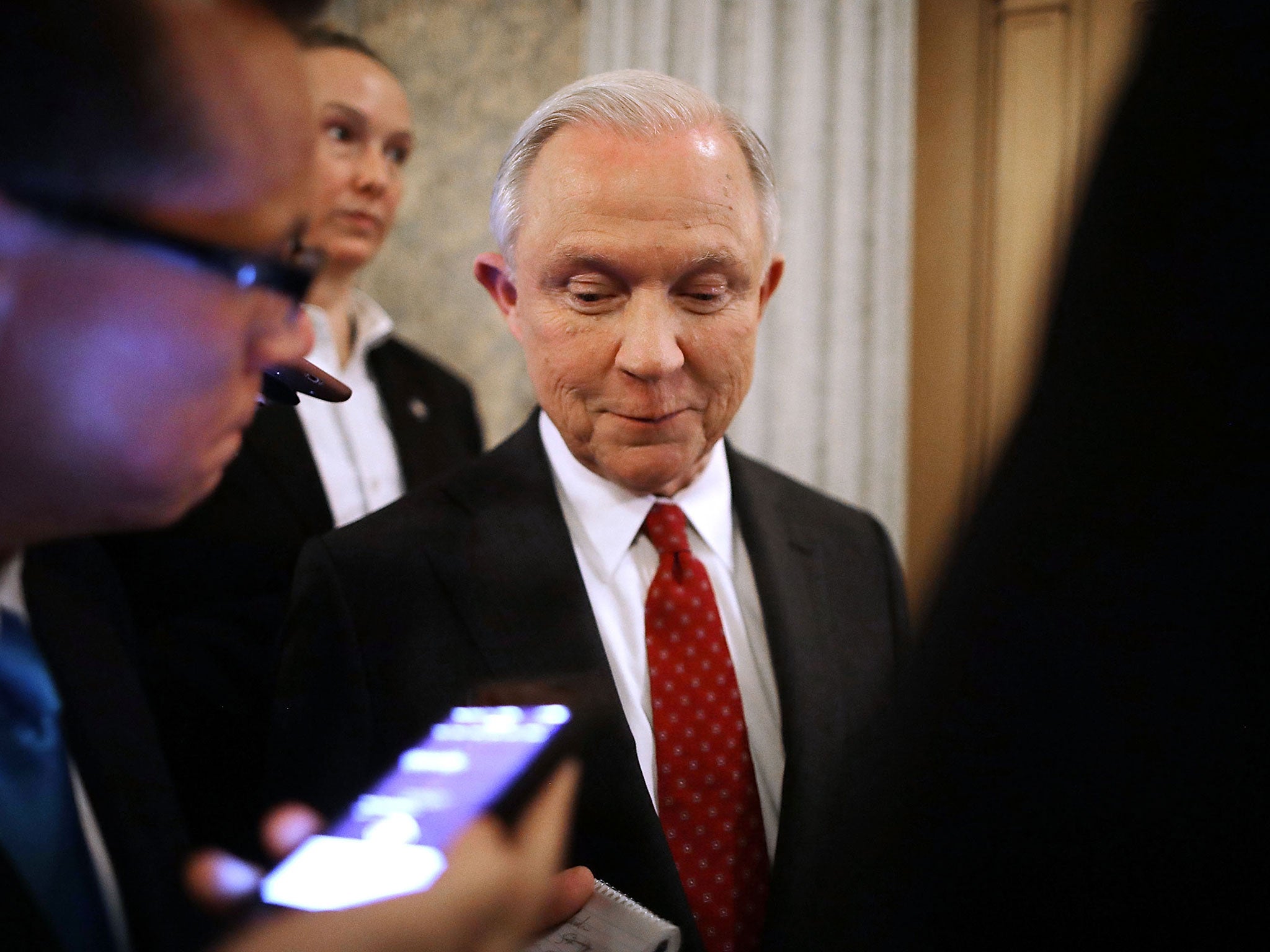Jeff Sessions: ‘It’s not insensitive to civil rights to stop monitoring police’
New Attorney General has already invested more power in law enforcement

Attorney General Jeff Sessions said his Justice Department would pull away from Obama-era pledges to monitor police departments in a bid to counter the high number of deaths at the hands of law enforcement.
Mr Sessions said that former President Barack Obama’s moves to provide federal oversight to the police served to undermine their effectiveness across the US.
"We need, so far as we can, in my view, help police departments get better, not diminish their effectiveness," Mr Sessions said to the National Association of Attorneys General.
"And I’m afraid we’ve done some of that. So we’re going to try to pull back on this, and I don’t think it’s wrong or mean or insensitive to civil rights or human rights."
He added that, by backing away from moves to monitor the police, law enforcement could work to “make the lives of people in particularly the poor communities, minority communities, live a safer, happier life so that they’re able to have their children outside and go to school in safety and they can go to the grocery store in safety and not be accosted by drug dealers and get caught in crossfires or have their children seduced into some gang.”
Mr Sessions, when he was sworn into office, said rising crime was a "dangerous, permanent trend" despite statistics suggesting it was only a small spike over the past two years and that crime had actually plummeted over the last few decades.
He did not mention any cities in his remarks, but President Donald Trump has consistently referred to Chicago as a "third world country" where people are "living in hell".
Chicago is the one city where Mr Obama’s Justice Department released a report on the "pattern of excessive force" displayed by the police, and where mayor Rahm Emanuel and police were set to negotiate a federal monitoring agreement.
But Mr Sessions said he was unimpressed by the former Justice Department’s report, and accused such agreements of undermining respect for police and "making their jobs more difficult".
A total of 214 people have died at the hands of law enforcement since 1 January this year, according to a database called killedbypolice.net
Mr Sessions has knocked aside Obama-era policies to protect transgender students and Texas minority voters; he also helped to craft the notorious Muslim ban which was struck down by a federal court eight days later; he has invested more power in the police and directed federal funding to tackle crime, drugs and illegal immigration. He also wants to maintain Guantanamo Bay, a prison accused of systematically violating human rights.
When education secretary Betsy DeVos initially argued against the rolling back of transgender protections for students, the President sided with Mr Sessions, who has been rewarded for his loyalty.
Join our commenting forum
Join thought-provoking conversations, follow other Independent readers and see their replies
Comments
Bookmark popover
Removed from bookmarks